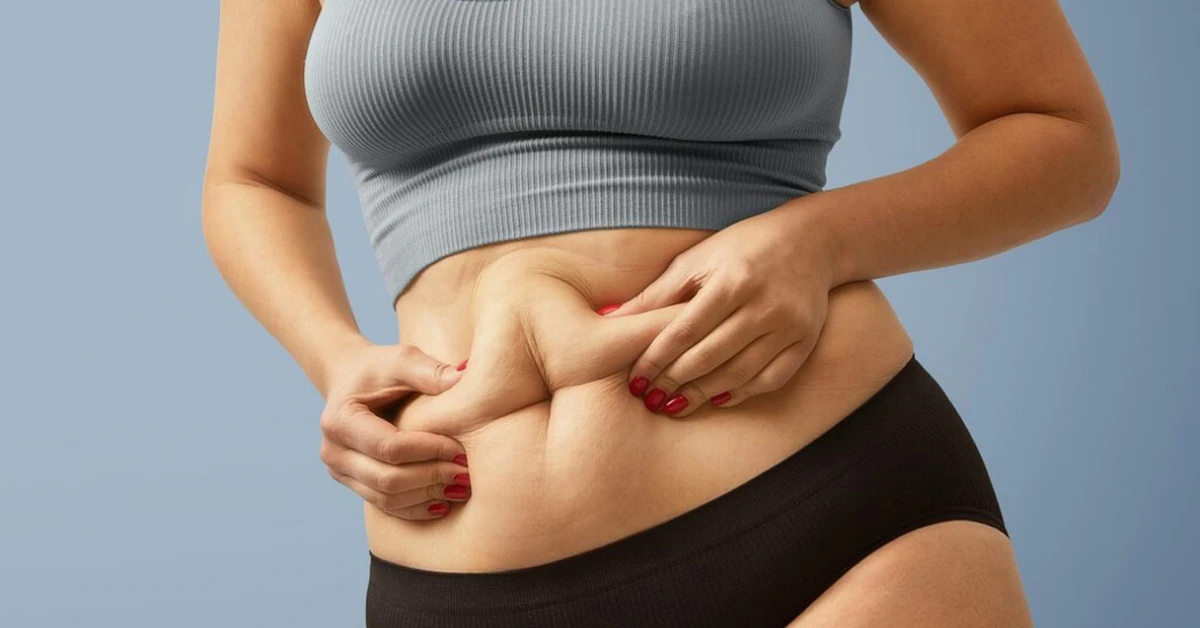Quick fact: You can sweat through a spin class and still gain weight. Your body burns 15% fewer calories by your 40s than your teens. And that latte you guiltlessly sip while staring at spreadsheets? Your hormones want you to crave pizza instead of kale. Yep, biology’s a mind-bending game.
You know that feeling when you’re doing “all the right things” – salads > fast food, yoga > couch time – but the scale still ticks upward? You’re not alone. Stress, sleep, and hormones like cortisol play hide-and-seek with your fat cells while your genes quietly shrug. Let’s decode how your body, environment, and habits – even medical ones – team up to change the weight game.
The Numbers That Lie
You think you’re eating “not too much” and moving “enough.” But here’s the twist: calorie tracking doesn’t account for hormonal changes, late-night binges, or medication sabotage. Your metabolism slows with age, muscle burns fewer calories than fat, and that “healthy” salad with dressing from a bottle? It’s basically deep-fried lettuce when you check the fat content.
When Science Gets Weird
“African Tribes vs. Office Workers” Study
Let’s rewind to a 2022 Harvard study. Researchers tracked Hadza hunter-gatherers in Tanzania and western office employees – same calorie burn but different results. The takeaway? The westerners were fatter not because their bodies used fewer calories but because of how they ate. Processed foods, endless snacking, and a lack of gut bugs that control cravings were the real culprits – not laziness.
Why Burn Isn’t Everything
Congratulations – your metabolism doesn’t give a damn about how often you exercise. It wants to hold on to fat in case you run into a famine. (Thank you, evolution).
Older folks? Your muscles shrink, which kills calorie use. Post-menopause women gain belly fat? Estrogen drops and cortisol climbs. And if you took a beta blocker for blood pressure? Guess what: it could be slowing down your metabolism by turning fat-burning mode into “hoard energy.”
Calorie Burn vs. Fat Storage: A Snapshot
| Group | Average Calories Burned | Diet Type |
|---|---|---|
| Hunter-gatherers | 2,600 | High-fiber plants, lean wild meat |
| American desk workers | Similar | Processed meals, sugar-laden coffee drinks |
The Things You Overlook
Are You Stress-Eating?
Here’s your wake-up call: you’re not “slacking” when cortisol makes hunger feel like an emergency. Chronic stress triggers ghrelin (the “gimme snacks” hormone) and suppresses leptin (the “I’m full” signal). Suddenly, that midnight cookie stash seems normal.
Sugar-Free? Yeah, Right.
Artificial sweeteners like aspartame and sucralose play dirty. They make your brain expect sugar but give it zero satisfaction – so your cravings go haywire. Your body thinks you’re malnourished and asks, “Hey, remember that birthday cake? Let’s eat six slices tomorrow.”
Move to the US? Welcome to Weight Gain Town
If you’ve recently relocated to America and suddenly gained 10 lbs, you’re not overeating – you’re adapting. Our portions are massive, fast food is $1 cheaper than veggies at times, and our gut microbiome has more junk food tolerance than your old one. (Blame westernization, not you).
Unexpected Sources of Hidden Calories
- Diet soda: Still makes your brain want sugar
- Flavored coffee: One grande latte = 500 calories
- Healthy yogurt: Unless you skipped added sugar
Your Body’s Silent Rebellion
Hypothyroidism: You’re Tired, Bloated, and Still Eating Right
Got unexplained weight gain with brittle hair and brain fog? Your doctor’s first move should be a TSH test. Underactive thyroids slow calorie burn, but a simple treatment exists. If your body’s acting sluggish? It’s not your imagination – check this one out.
PCOS and Menopause: Hormones That Hate Your Jeans
For those rolling into menopause or dealing with PCOS, it’s not just “normal aging.” These shifts mess with your metabolism, redistribute fat to your midsection, and make salads feel pointless. You’re facing a hormonal storm, not bad food choices.
Prescriptions: The Weight Gain Side Effect
| Medication Class | Average Weight Gain (Year) | Solution |
|---|---|---|
| Antidepressants (SSRIs/SNRIs) | 5-10 lbs | Pair with protein-rich meals |
| Diabetes meds | Variable | Monitor dosage with your doctor |
| Corticosteroids | 5+ lbs | Track sodium and exercise |
Diet vs. Exercise: The Real Battle
Can Exercise Cancel Out Junk Food?
Let’s be real. You’ll never out-exercise pizza. Your gut microbiota (those 1.5kg of bacteria) regulates hunger, insulin sensitivity, and fat storage. Exercise builds muscle, which burns a few extra calories daily. Diet? That rewrites your gut’s blueprint every time you chew.
Why Calorie Deficit Works, But Sometimes Fails
Healthline reports that processed food disrupts satiety signals. Your body wants 500 fewer calories per day from whole foods. But the real kicker? Once your metabolism drops below 1,400 calories/day (due to aging or genes), losing fat becomes a Sisyphean effort.
Metabolism Myths: Why “Just Burn More” Doesn’t Stick
“Lift weights to boost metabolism.” Sounds familiar? Here’s the catch: gaining muscle adds only 5-10 calories burned per day. You’d need 10 lbs of muscle to see a 50-calorie uptick. That’s not insignificant… but don’t expect overnight transformations.
Fixing the Puzzle
How to Start: Real Steps Without the Guilt
Here’s your cheat sheet:
- Ditch the sugar-free junk: Your brain hates being tricked
- Swap one soda a day for water: That’s 150,000 calories less per year
- Add a 20-minute strength routine, 2x/week: It doesn’t need to hurt
Still gaining? Call your doctor for basic tests (T4, testosterone, cortisol) and a medication review. Sometimes weight gain isn’t a lifestyle failure – it’s a biochemical red flag.
What You Need to Track
You don’t need a food journal that turns your dinner into a spreadsheet. Start small.
- Track sleep: Less than 6 hours a night = higher body fat
- Notice cravings: Sudden pizza obsession = cortisol spike
- Weigh weekly: Gain 5 lbs in a month? Time for a check-in
Key Takeaways (No Fluff)
Weight gain causes go beyond “eating too much.” Your hormones, gut bugs, environment, and even geography mess with your scale. The best fix? A little detective work, some lifestyle tweaks, and letting go of “all-or-nothing” thinking. You can’t control your genes, but you can ditch late-night eating and get blood tests done. The sooner you figure out what’s really happening, the easier your path forward becomes. You’ve got this.

























Leave a Reply
You must be logged in to post a comment.